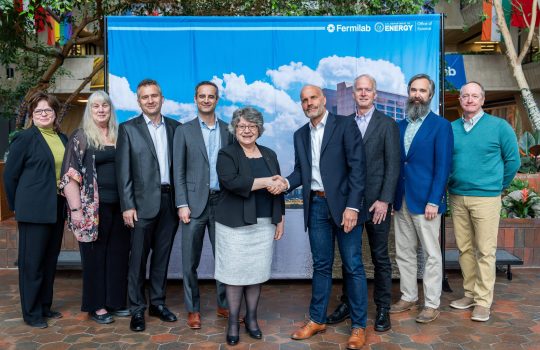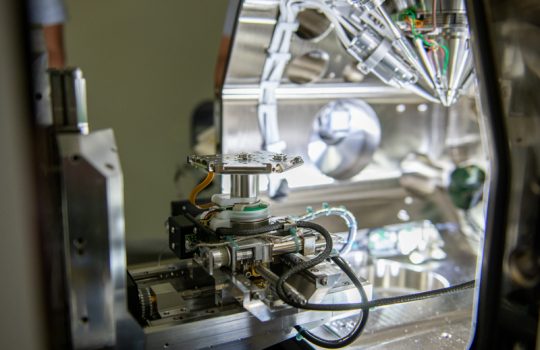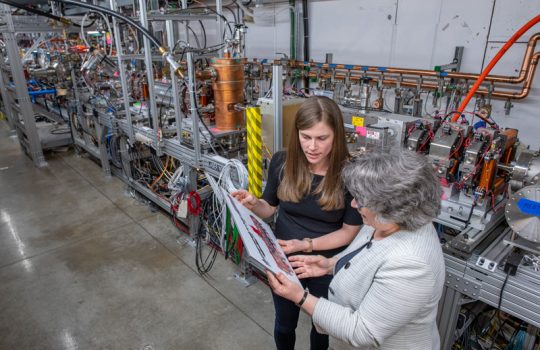Superconducting innovation: SQMS shapes up for scalable success in quantum computing
Physics World, June 5, 2025
The SQMS Center is working on reproducible and scalable realization of highly coherent superconducting qubits to open the way to more complex and scalable quantum computing operations. These capabilities could be used in Fermilab’s core particle physics research and fundamental physics more generally over time.





